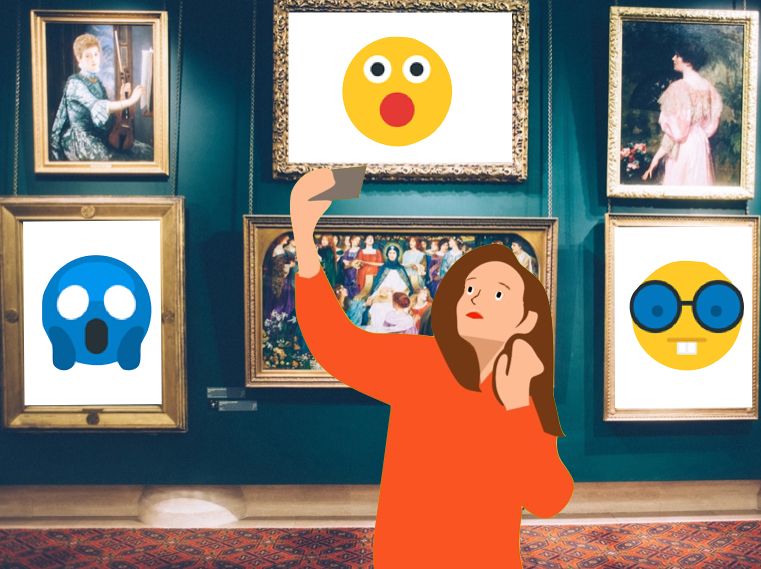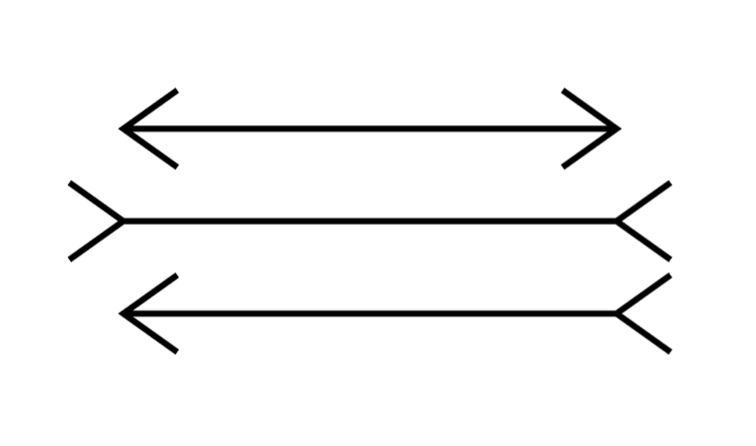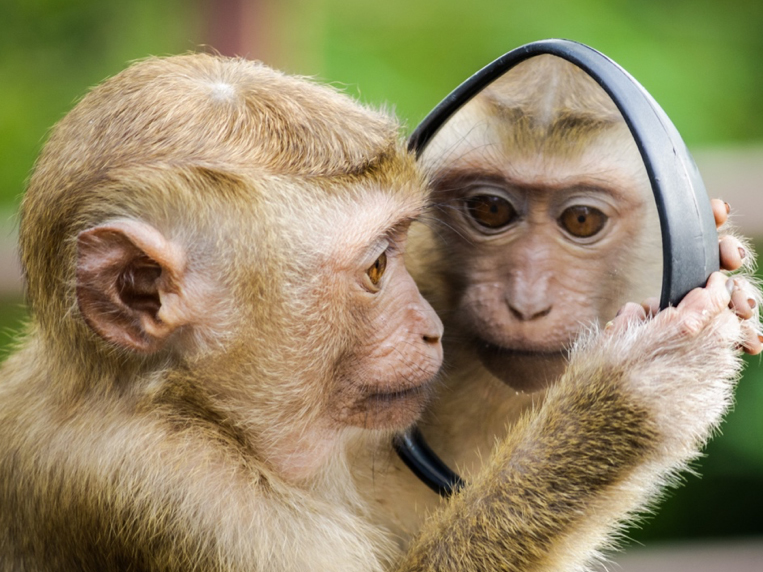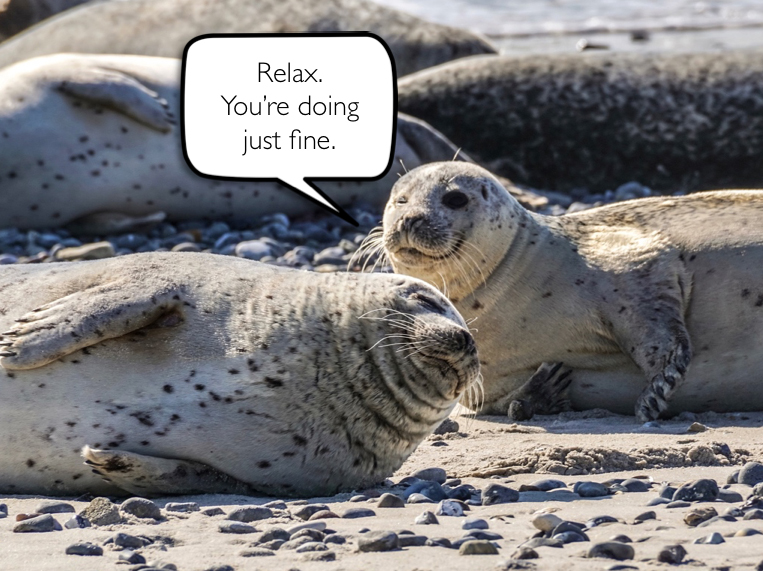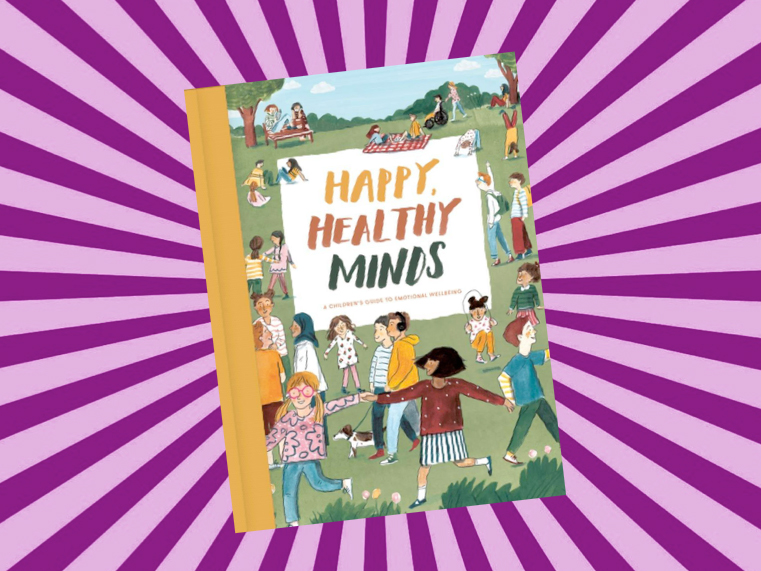In an Instagram perfect world, it’s easy to feel like you don’t quite measure up.
The standards are ridiculously high.
All those perfect bodies, perfect meals, perfect smiles and perfectly decorated homes can make you feel lousy.
Could all these perfect images be messing with your brain?
Absolutely.
This why late last year I took the plunge and deleted all my social media accounts. All that social comparison (and the general toxic vibe) was getting me down. It may be getting you down, too.
The illusion of social media
You’ve probably seen the following optical illusion: The Muller-Lyer illusion
In this illusion lines of the same length appear to be different lengths. But they’re not. The lines are exactly the same length.
I love optical illusions because they show us how the human mind can play tricks on us. We are so sure we are right about something (“That line is longer!”) but it turns out, we’re wrong.
A similar thing happens when you go on social media . . .
Social media presents us with a highly curated version of other people’s lives. You’re exposed to the very best bits. This distorts your perception of reality.
As Professor Dr Laurie Santos states:
“If you imagine people have a plot in their life of like things that are just kind of super boring, or bad, or to things that are awesome, people aren’t snap chatting this stuff [the super boring and bad stuff] unless it’s like really funny . . . they’re usually snap chatting this stuff [the awesome stuff], right?
So you’re not seeing the right distribution. But in your own life, you see the distribution. You look at other people’s Snapchats and you’re like, “Everybody else’s life is awesome and everybody else is like doing cool things that I’m not.”
It’s in our biology to trust what we see with your eyes. So we get easily fooled into believing the highlight reel on social media.
Behind the edited photos, we can’t see the other person’s struggles.
But unlike most of the people you follow on social media, you know yourself well. You know that your life is not all ponies, kittens and rainbows. Life is messy.
If social media reflected real life
If I was to fill your social media feed with the thoughts and feelings of some of the students that I have worked with, here is what some status updates would say:
• “My teachers are talking too fast. I can’t keep up! #feelingstupid”
• “I find myself swinging from not eating at all to snacking excessively. What is wrong with me?”
• “I can’t sleep at night. I manage 1 to 2 hours max. I am sooooo tired.”
• “My maths teacher is a bully. She told me to start using the big brain that is inside my tiny head. My mental health is going down hill because of her.”
• “My ex-boyfriend is toxic. I have to see him everyday at school. Ugh. It’s awful.”
• “I can’t find part-time work. I need a job. No one wants to hire me. Why don’t they want me?”
• “I’m drowning in work. I don’t know how to study. I’m not sure I can do ATAR.”
• “Some boys were making jokes about my arms. They were saying I have hairy arms. So what did I do after school today? I shaved off all the hair on my arms.”
• “I keep failing OLNA. I can’t do maths. I think there must be something wrong with my brain. I need to get a diagnosis.”
• “On my first day of school I felt sick and I threw up before going to school. I felt so sick and anxious when I arrived at class. . . I really wanted to make a good first impression on my first day but I feel like I blew it.”
• “Now I’m in year 11 and things are more serious. I have to think about my future . . . it’s a bit scary because I have no idea what I want to do.”
When I talk to students, I can often see the worried look in their eyes. Their eyes say . . .
“What the hell is wrong with me?”
But here’s what I want to say to these students . . .
“There is nothing wrong with you. You’re perfectly fine. You’re doing just fine.”
The bottom line is this . . .
We’re all dealing with stuff. We’re all fumbling our way through life.
That doesn’t make you weird or defective. That just makes you human.
In the book Happy, Healthy Minds by the School of Life, the authors say the solution is simple:
Accept that you’re an idiot.
I realise this sounds really harsh. But here’s what they mean by this . . .
We all do foolish things.
We all feel anxious and nervous from time to time.
We all bomb out on tests and assignments.
But that’s okay!
Remember, you are human.
Accepting you’re an idiot (just like everyone else) should give you some freedom to try new things. Next time things don’t quite turn out, you’re less likely to beat yourself up. You can practice a little self compassion.
The School of Life also says it’s important to remember this . . .
“ Every so often, things will go right: we make a friend, we get a part in the play, we learn a language . . . “
In short, life doesn’t have to be perfect to be good.
So embrace your quirks. Accept you’ll make mistakes. And please, go easy on yourself.

